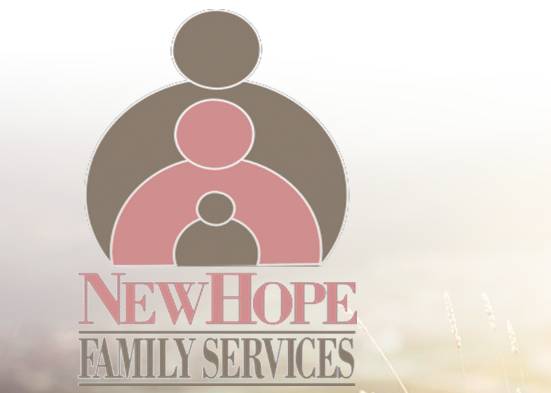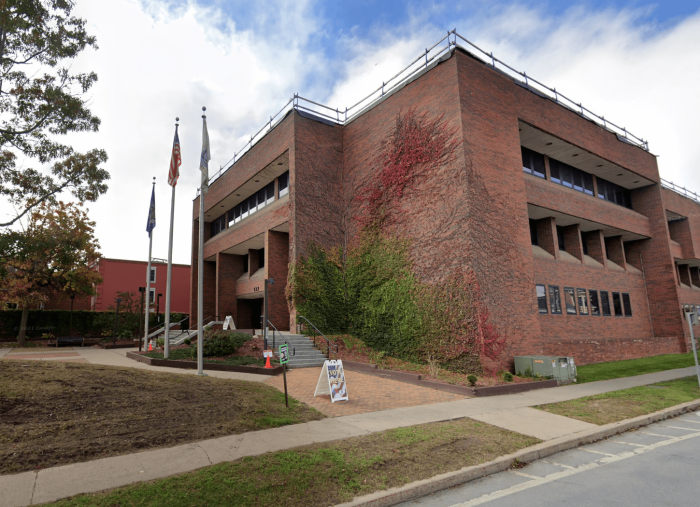US District Judge Mae D’Agostino ruled on September 28 that New Hope Family Services, a Christian adoption agency in Syracuse that refuses to provide services to same-sex couples or single people, is exempt from complying with the New York State Human Rights Law ban on discrimination by places of public accommodation.
Ruling just weeks after she had issued an injunction against the state’s Office of Child and Family Services (OCFS), which was threatening to rescind New Hope’s authorization to provide adoption services because of its discriminatory policy, the judge issued a preliminary injunction against Attorney General Letitia James, the members of the New York State Human Rights Commission, and the Onondaga County District Attorney, barring them from enforcing the anti-discrimination provision against New Hope while this case proceeds.
New Hope was founded by a Christian minister and considers its adoption service to be a “ministry” based on its understanding of Christian precepts, one of which, according to its complaint in this case, is to place children for adoption only with different-sex married couples. When OCFS “learned” of this policy through a routine agency audit in 2018, it threatened to rescind New Hope’s authorization. Alliance Defending Freedom (ADF), a Christian litigation group, sued New Hope in federal court, claiming a violation of New Hope’s First Amendment rights. Judge D’Agostino dismissed the case, but the US Court of Appeals for the Second Circuit reversed, finding that New Hope had stated a plausible First Amendment claim, and sent the case back to Judge D’Agostino.
While that case was pending, an individual [not named in the opinion] called New Hope to inquire about adoption services and was told by New Hope’s director that “because of New Hope’s convictions as a Christian adoption service, New Hope works with adoptive families built around a married husband and wife. Others may be eligible to adopt under New York law, and upon request New Hope can provide contact information about other adoption services in the area.” The individual told the director that New Hope was violating New York law, and four days later filed a charge with the State Division of Human Rights (DHR), which enforces the Human Rights Law. DHR immediately sent a copy of the charge to New Hope, giving it 15 days to respond.
New Hope, represented again by ADF, filed a new complaint in Judge D’Agostino’s court, claiming that its practice was protected by the First Amendment and seeking a preliminary injunction against DHR and state and country prosecutors to block any investigation or enforcement action against it. While New Hope’s motion for preliminary injunction was pending, Judge D’Agostino issued a permanent injunction on September 6 against OCFS in the earlier lawsuit, finding that New Hope had a valid freedom of speech defense for its challenged practices. The next day, DHR issued a finding of “probable cause” to believe that New Hope was violating the Human Rights Law. The next step would be for DHR to schedule a hearing before an administrative judge, with the ultimate possibility of a court order imposing a fine and ordering New Hope to comply with the Human Rights Law.
DHR’s action appears to have triggered Judge D’Agostino, who had been sitting on New Hope’s motion for preliminary injunction for almost a year, to spring into action. She issued a preliminary injunction on September 28.
The defendants argued that the federal court must abstain from intervening in a state proceeding at DHR, but Judge D’Agostino found that the usual federal abstention rule should not apply because at the time New Hope filed this lawsuit, the defendants had not brought any enforcement action and the investigation had barely begun. She also found that because a charge had been filed against New Hope and DHR had demanded a response, New Hope clearly had standing to file this lawsuit, as the possibility of prosecution was not totally speculative. The judge rejected the argument that Attorney General James had nothing to do with this case, pointing out that several provisions of state law give the Attorney General authority to enforce the Human Rights and Civil Rights laws in court once DHR has made a determination of a violation.
In order to get a preliminary injunction, New Hope had to persuade the court that it was likely to prevail on the merits of its claim. Without needing to address the constitutional issues that New Hope raised, Judge D’Agostino found that New Hope was likely to prevail on the argument that it is not a “place of public accommodation” subject to the anti-discrimination requirements of the Human Rights Law.
“Recently, in Fulton v. City of Philadelphia, Pennsylvania, the Supreme Court held that a private religious foster agency was not a place of public accommodation under a Philadelphia ordinance,” she wrote, going on to find that the Philadelphia public accommodations law was very similar to the New York State public accommodations law in defining the scope of coverage.
In writing for the Supreme Court, Chief Justice John Roberts said that a “public accommodation” is an entity whose services or goods are essentially available to any member of the general public without qualification. By comparison, a foster or adoption agency establishes qualifications and goes through a rigorous vetting process to determine who is eligible for its services, some of which are mandated by state regulations. The Supreme Court found this distinction significant, concluding that “the one-size-fits-all public accommodations model is a poor match for the foster care system” and the “uniquely selective nature of the certification process.”
The defendants failed to persuade Judge D’Agostino that the Philadelphia and New York laws were sufficiently distinguishable to dictate a different result. Furthermore, she had already ruled that New Hope’s policy was probably protected by the First Amendment free speech provision, after having been virtually instructed to reach that conclusion by the Second Circuit’s opinion reversing her dismissal of the lawsuit against OFCS.
Thus, the judge found that the criteria for a preliminary injunction had been met. New Hope was likely to prevail on the merits due to her conclusion that it was not subject to the non-discrimination law. She pointed out that allowing New Hope to continue following its policy would not deprive single people and same-sex couples from the ability to adopt children because there were many other authorized agencies available who do not impose the traditional marital qualification, and the preliminary injunction would “merely preserve the status quo as litigation proceeds in this matter” and in the other OFCS lawsuit. Furthermore, she wrote, “it is well established that securing First Amendment rights is in the public interest,” and she had already determined in the other case that New Hope’s policy is protected by the First Amendment.
Judge D’Agostino’s order issuing the preliminary injunction can be appealed by the state, but meanwhile New Hope can continue to discriminate against same-sex couples and single people by withholding its services from them.





























